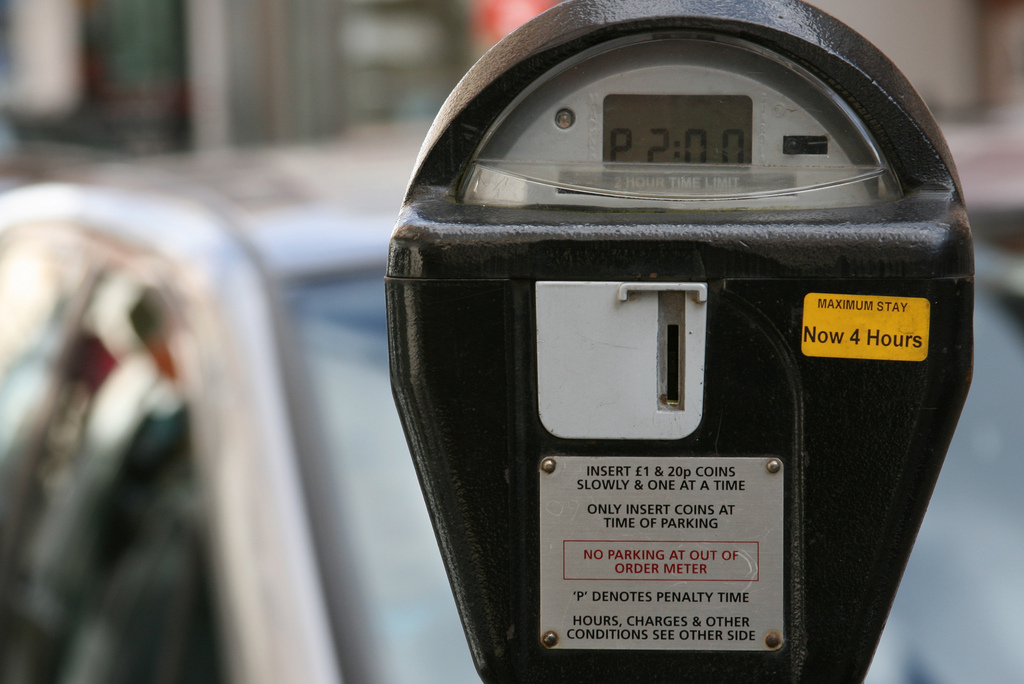
Photo: Pete Bells (CC by 2.0)
By Heather Cameron
“High streets are not just about shops; we have to consider what local people want” (Mary Portas)
Councils called for a scrap in parking charges recently following reports of booming trade in Cardigan, Mid-Wales, after pay-and-display machines were broken by vandals. Shopkeepers reported huge increases in turnover, with some up as much as 50%.
Three years on from her independent review of high streets, Mary Portas has said that the main source of dissatisfaction with our high streets is – you’ve guessed it – parking charges. Portas highlights research by Deloitte that shows 34% of us are unhappy with the cost of parking to access high streets otherwise regarded as convenient. The research suggested that consumers want to see more of:
- Free parking (60%)
- Choice of stores (59%)
- Independent stores (57%)
- Specialists e.g butchers (50%)
- Parking spaces (48%)
Portas also notes that the more progressive local authorities are providing free parking at certain times or are freezing parking charges.
This begs the question – should parking charges be removed or changed to aid our declining high streets?
Decline of the high street?
It’s no secret that since the growth in large out-of-town shopping centres, local high street stores have struggled to compete. Business owners in Cardigan suggested that the temporary removal of parking restrictions “levelled the playing field” when it comes to competing with these shopping centres where parking is often free.
Despite efforts to regenerate high streets and make them more appealing to consumers, the latest BDO high street sales tracker recorded a further month of decline in August, with sales falling by 4.3% compared to the same month last year – the worst performance since November 2008.
Much of this can be attributed to an increase in spending on leisure activities, including holidays abroad. The strong pound hasn’t helped the high streets as consumers are spending more on items abroad while tourists are more reluctant to spend.
As it is often cheaper to shop online and pay for delivery charges than it is to pay for parking for a couple of hours, it is little wonder people are less likely to shop on the high street. The threat of parking tickets is also a deterrent for many.
Earlier this year, high streets minister, Marcus Jones, claimed “unfair parking fines push up the cost of living and undermine high streets”.
So what is being done to address this issue?
New parking initiatives
Many of the Portas pilots trialled parking initiatives to bring more people to the high street. The ‘free after three’ initiative is one that has been introduced in a number of places since and has shown to have made a difference. Visitor numbers increased in Salisbury following a six month experimental period of the initiative. Nearly double the number of cars used the car park per week, making the town noticeably busier.
Just last month, Chippenham launched its own ‘free after three’ pilot initiative on Thursdays to support local businesses. It’s hoped that this will help shops and offices as well as improve the evening economy.
Rotherham Borough Council, for the fifth consecutive financial year in 2014/15, planned for no increases in the cost of parking. Portas suggests that it is no coincidence that 55% of shoppers in the town centre came by car, compared to 29% in 2009.
A way forward
Despite the evidence in support of free parking in town centres, it is also something that could easily be met with opposition. With calls to reduce car use and tackle emissions from vehicles, particularly in larger towns and cities, a balance needs to be struck.
And free parking alone is unlikely to save the high street. As Portas argues, a combination of actions are required. She suggests that while moves have been made in the right direction, more commitment and action is needed from government, specifically on:
- Access and parking
- Reforming business rates
- Landlord registers
- Long term support for Town Teams and simplification of the process of forming BIDs.
Clearly, parking is an important part of the picture in our smaller towns and cities, particularly in an age where convenience is key. If our high streets are to be viable, it’s something that councils need to think about carefully as part of a strategic approach to local economic development, rather than only as a way to manage traffic and generate revenue for traffic improvements.
Follow us on Twitter to see what developments in public and social policy are interesting our research team.
The Idox Information Service can give you access to a wealth of further information on town centres and regeneration. To find out more on how to become a member, contact us.
Enjoy reading this? Read our other recent articles on related topics:
Share
Related Posts
A recent item on BBC Radio 4’s Today programme generated an unusually high number of responses from listeners. A man who had lost his job in the financial services sector at the age of 57 described his difficulty in trying ....
Tackling geographical inequalities is critical for ensuring that all parts of the country have the potential to prosper. When the UK was a member of the European Union, it was entitled to a share of funding from the EU’s structural ....
By Ian Babelon A new-old concept for proximity “Are we there yet?” Parents may patiently nod to their children’s insistent nudges on a 20-minute journey to… somewhere. Quite rightly, researchers have asked: twenty minutes to what? The answer may well ....
By Robert Kelk and Chris Drake A new start for an old challenge? The recent appointment of Marc Lemaître as the European Commission’s director general for research and innovation (R&I) has returned Europe’s R&I gap to the spotlight. Previously head ....
